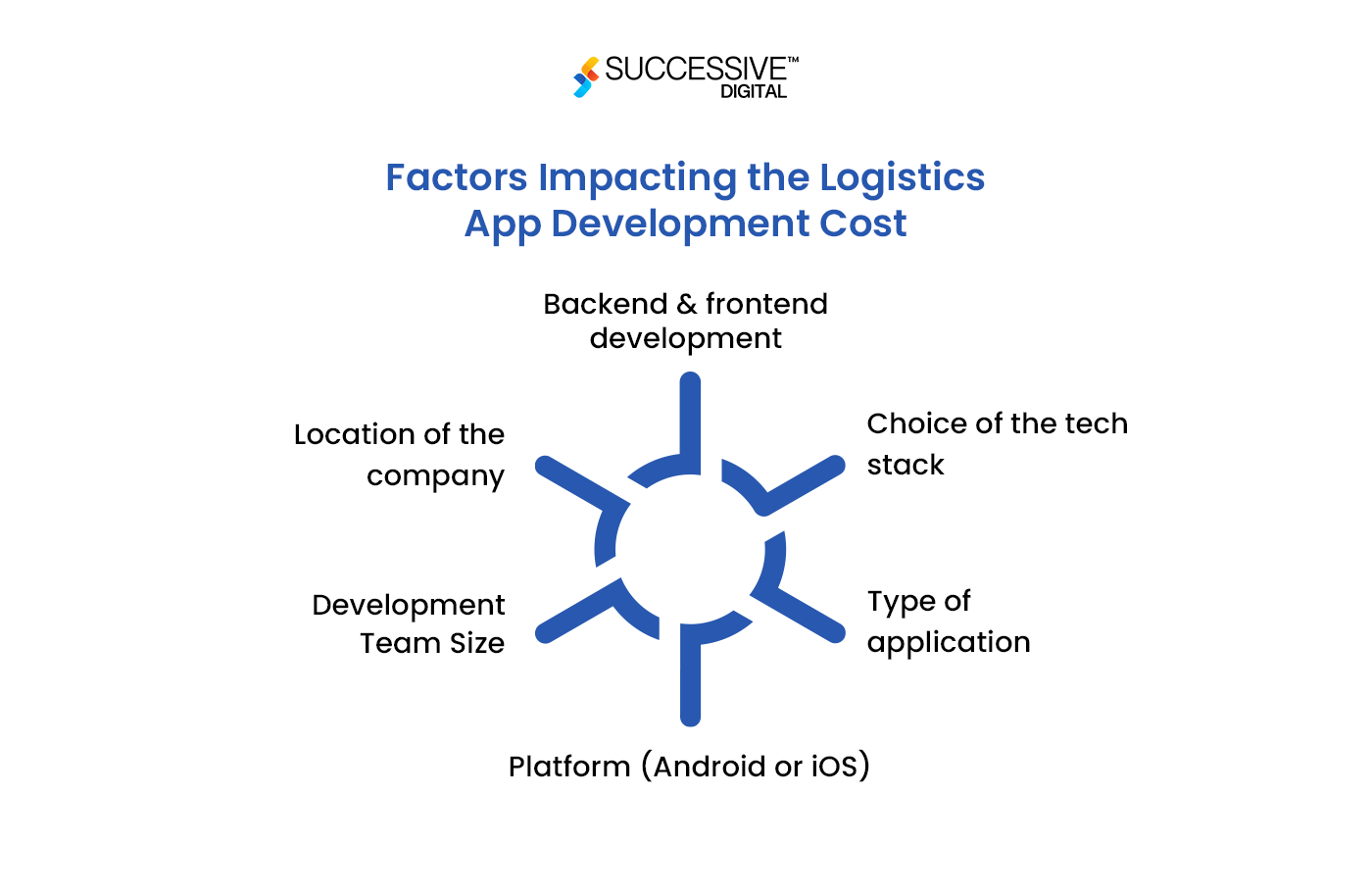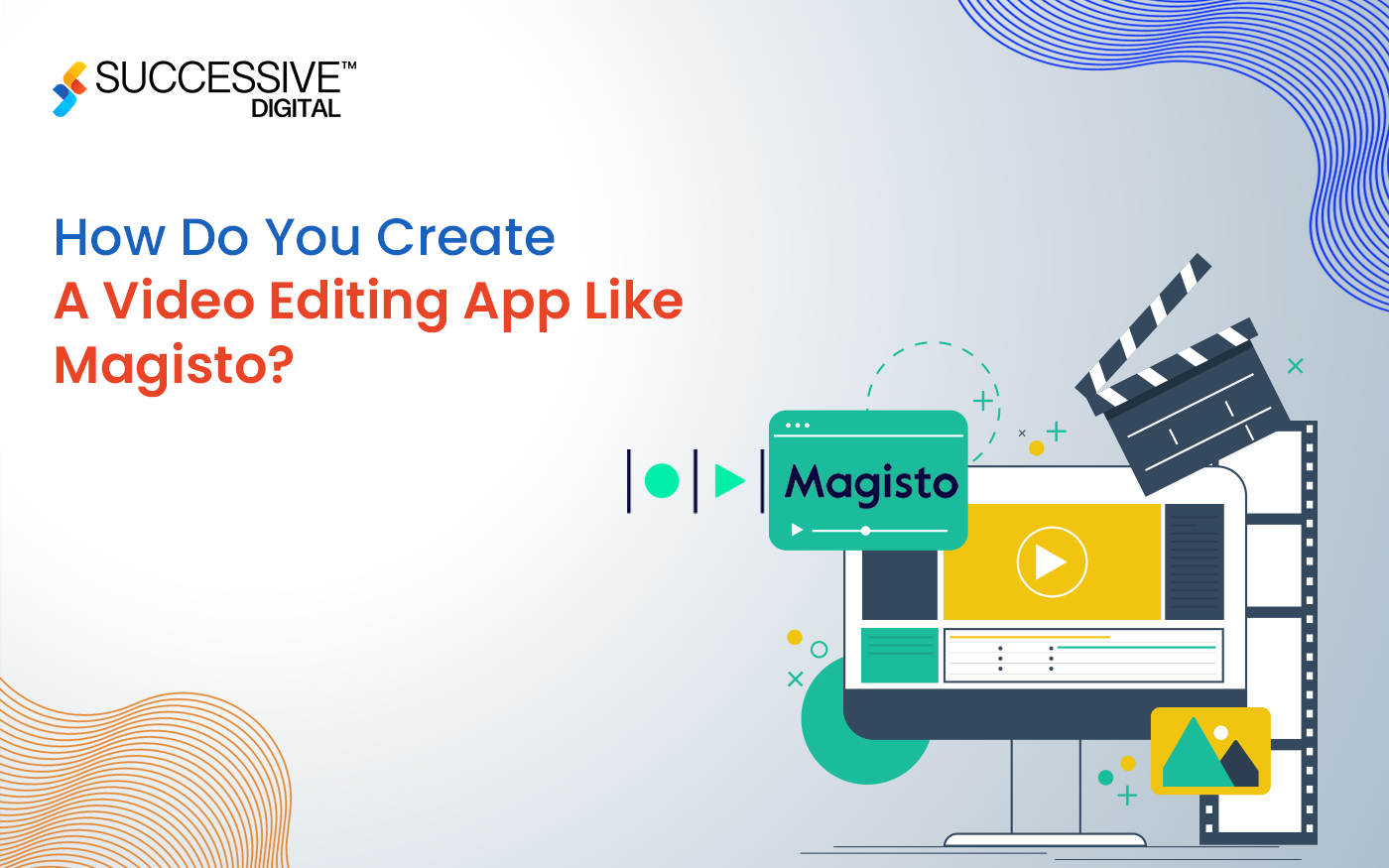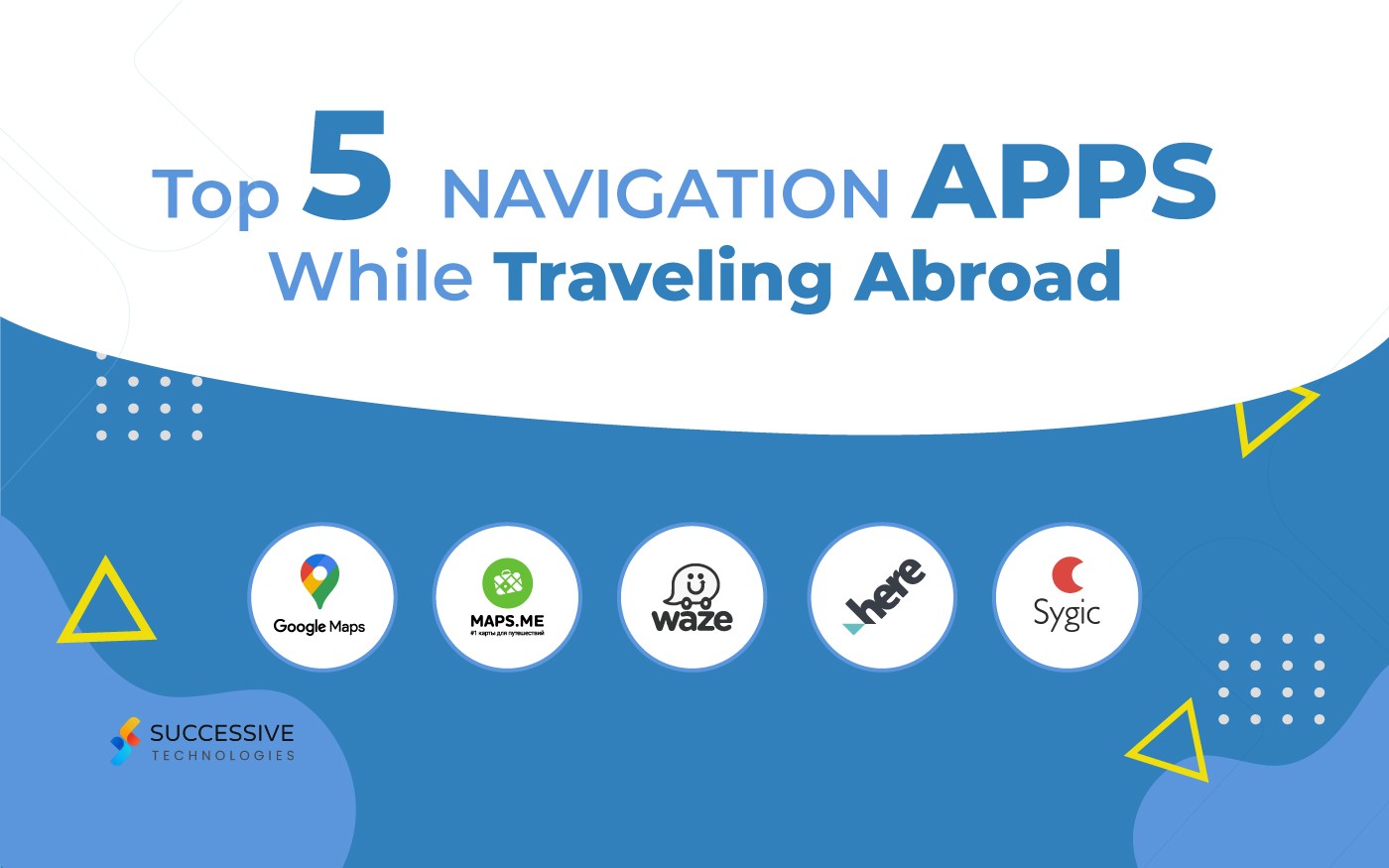Each year, operational and downtime errors cost the transportation and supply chain sectors a huge loss. Many operations, such as inventory management, inadequate infrastructure, and transport optimization, posed a huge challenge for logistics businesses. As we embrace the evolving world of digitalization, it is no surprise that the logistics industry has also transformed with it. Many businesses like FedEx, thriving in the supply chain and logistics industry today, have advanced significantly by investing in on-demand logistics app development. By eliminating middlemen in the supply chain, logistics applications have boosted transparency.
Hence, to thrive in today’s competitive world, businesses must have a user-friendly mobile app to enhance their logistics operations and boost ROI. To develop an app like FedEx, you must first understand the development cost.
This blog will discuss the intricacies of the logistics app development cost and the key factors that impact the final estimation.
Understanding Logistics App Development – The Success Story of FedEx
“The invisible thread of logistics binds the fabric of commerce and trade” –Rosemary Gibson.
While logistics is handled on the backend side of commerce and trade, it plays a vital role in fulfilling the order delivery process. Hence, logistics app development is a potent solution for businesses to streamline and optimize logistics operations such as inventory management, order tracking, fleet management, and delivery scheduling.
But investing in logistics app development often raises a question–how did the courier transportation company FedEx become a global leader?
FedEx’s success story is rooted in its innovative express shipping and logistics approach, thanks to the growth of online shopping. It is a global provider of transportation, eCommerce, and business services, offering customers an extensive portfolio of services. Founded in 1971 by Frederick W. Smith, FedEx revolutionized the industry by introducing the concept of a centralized air hub and a comprehensive tracking system. This streamlines the package sorting and transporting, ensuring timely deliveries.
Over the years, the company expanded globally, acquiring strategic partners and integrating robust technologies. FedEx continually invested in its infrastructure, such as the Memphis SuperHub. FedEx corporation comprises– FedEx Express, which focuses on air delivery services; FedEx Ground, which specializes in ground shipping; and FedEx Freight, a heavy freight service.
Additionally, it also focused on improving its operations, such as AI-based tracking systems, enhanced operational efficiency, reduced transit times, and increased customer trust. This strategic vision, coupled with a relentless pursuit of excellence, not only solidified FedEx’s position as a leader in the logistics industry but also contributed to a substantial increase in the company’s ROI. The company’s commitment to reliability, speed, and customer satisfaction propelled its growth, attracting diverse clients.
Notable Statistics of the Global Logistics Industry
Here are some game-changing statistics that will help you understand how the logistics industry is set to grow in the coming years.
- The logistics industry is expected to reach USD 14 trillion by 2028.
- The global digital logistics market size was $18.10 billion in 2021 and is expected to reach $77.52 billion by 2030.
- Logistics/trucking holds the highest market share of 35% in the transportation sector, making the industry one of the fastest-growing industries in the coming years.
- The eCommerce logistics market will increase to approximately USD 809 billion by 2026.
- Being one of the leading couriers and local delivery companies, FedEx generated an annual revenue of USD 94 billion in FY 2022.
How Much Does FedEx Logistics App Development Cost?
The costs associated with developing a logistics app are impacted by various factors, including whether you’re looking to build a basic feature app or a complex app with custom features. The logistics mobile app development cost can range from $30,000 to $200,000 or higher, depending on how complex your app is.
Consider this table to understand the cost better:
| App Complexity | Development Cost |
| Simple App | $30,000 to $70,000 |
| Moderate App | $70,000 to $200,000 |
| High Complexity App | $200,000 or more |
However, remember that these are mere figures, and the final estimation will depend upon the features and customization you want in your application. Hence, to get a factual budget proposal, partner with a professional eCommerce app development company. They will work closely with you to understand your business requirements and then provide an estimation.
Factors Impacting the Logistics App Development Cost
The logistics mobile app development cost will differ for every business based on their requirements. Various factors like app complexity, development platform, and location of the eCommerce mobile app development company will determine the final estimation. Now, let’s have a look at these impacting factors.

-
Backend and Frontend Development
The choices you make for the Backend and frontend development of your logistics app will play a pivotal role in determining the cost of your logistics application. To be more specific, it will cover the logistics app design, frameworks, tools, and technologies. The logistics mobile app development cost is affected by the level of UI complexity, backend strength, and the technologies integrated within the app.
-
Choice of Tech Stack
The tech stack chosen for logistics app development will significantly impact the cost. For instance, using high-end programming languages like Swift, Kotlin, Golang, etc., and hiring a development company to leverage its potential will increase costs. Additionally, it integrates the latest technologies like blockchain, big data for data analytics, artificial intelligence, and IoT into the app, leading to higher costs.
However, investing in these technologies is essential to ensure the app can meet the changing preferences of consumers and stay competitive. Hence, include these technology integrations while deciding upon your app development budget.
| Functionality | Tech Stack |
| Frontend | JAVA, Swift, Flutter, React Native |
| Backend | Ruby, Python, Angular, Javascript, .Net |
| Payment Gateway Integration | PayPal, Braintree, Stripe |
| Cloud Platform Integration | Microsoft Azure, AWS, Google Cloud, IBM, Oracle |
| Database | MongoDB, MySQL, SQLite, Firebase |
| Push Notifications | Firebase, Twilio, Push.io |
| Real-time Analytics | Firebase, AppCenter, Fullstory, Newrelic |
-
App Complexity
The complexity of a logistics app is defined by the functionality and features integrated into the app. The more advanced features you incorporate into your logistics app, the more app complexity will increase. However, the logistics app with a basic design will cost comparatively less. The higher the app’s complexity, the higher its development cost and the more time it will take for the development company to complete it.
-
Type of App
Since it is an on-demand application, its logistics app development cost is also higher than any other category, such as social media, mobile commerce, etc. This is because this single application consists of three separate panels, which require many resources equal to three applications. Hence, an on-demand logistics app like FedEx will cost more than other applications.
-
Development Approach (Native or Cross-platform)
The development approach chosen by the eCommerce development company for building your logistics app will be another contributing factor to the cost.
Native development involves starting from scratch and utilizing an operating system-specific programming language to create the app. Cross-platform development allows apps to be developed on multiple platforms, increasing their accessibility to a broader audience. While native app development can be costlier than cross-platform development, it’s important to note that the cross-platform method may not be able to provide a native app experience. Hence, consider your budget and target audience, and consult a professional logistics mobile app development company before choosing the development approach.
-
Location of the Development Company
The location of the development company will also impact the logistics mobile app development costs. For instance, developers from the USA, UK, and Europe will charge $50-$100 per hour for basic app creation, while developers in South Asian countries like India will charge $25 an hour. Hence, it’s best to outsource the app development from a professional firm that can handle the end-to-end process and deliver the project within your given timeframe. Look at the table below to understand the cost based on the company’s location-
Trending Technologies Influencing the Logistics Mobile App Development Cost
Technological advancements are transforming various industries, and logistics is no exception. From manufacturing to reaching products at your customer’s address on time, technology like GPS tracking, payment gateway integration, and data analytics has become vital in optimizing the flow of goods in the logistics industry, impacting the overall logistics mobile app development cost. Let’s have a look at these technology trends below:
-
Artificial Intelligence (AI)
With Artificial Intelligence (AI), you can have smart assistants to make better decisions. AI is becoming a game changer in the logistics industry by improving demand forecasting, inventory management, real-time tracking, and route optimization.
An innovation-driven mobile app development company utilizes the power of AI to automate all logistics operations, including picking, packing, dispatching, and shipping goods. AI-powered chatbots are transforming customer services in logistics industries by providing quick responses and seamless assistance to users.
AI-driven demand forecasting enables logistics companies to predict customer needs and optimize their warehouse accordingly. You can use AI algorithms to ensure real-time tracking and suggest better routers to drivers to avoid any delay.
-
Internet of Things (IoT)
The Internet of Things (IoT), combining the power of analytics, cloud, mobile computing, and the Internet, is transforming how companies manage logistics operations. IoT plays a crucial role in ensuring timely and safe delivery of goods.
Sensor trackers, Wi-Fi networks, and GPS tracking are vital technology sets that should be calculated in the total cost of creating a logistics app. These technologies make it easy to track products & deliveries, reduce downtime, manage inventories, and avoid stock shortages.
-
Robotics and Autonomous Vehicles
Connecting robots and autonomous vehicles with software systems can significantly sort your tasks with automation. It includes managing tasks like picking, loading, unloading, packing, etc., that can reduce your labor costs, minimize human error, and enhance productivity. Moreover, you can track the status of your inventory and get it restocked before it is vacant.
-
Big Data & Data Analytics
Integrating big data and data analytics in logistics apps can improve decision-making and risk management capability. Hence, logistics businesses can get more control over inventory and other operations.
There are various benefits of big data analytics and logistics analytics in the supply chain that can dramatically improve its operations and maximize ROI. Real-time analytics enables marketers to predict future states, identify potential risks, find target audiences, and generate sales opportunities. You can adjust your logistics operations and take preventive measures based on predictive analysis. It will help you deliver results as per customer requirements, enhancing customer satisfaction and loyalty.
-
Cloud Computing
A lot of data is stored and managed in executing Logistics operations. Therefore, cloud computing maximizes agility and enhances logistics scalability, adding to the overall logistics app development cost.
Cloud storage facilitates many benefits, such as providing a holistic view of the supply chain, predicting market changes, faster execution, and an integrated and collaborative platform. It allows storing extensive data, including inventory, customer information, and transportation details. Hence, cloud computing offers flexibility and scalability in the logistics business, ensuring optimal performance and cost-effectiveness.
Conclusion
The logistics industry is rapidly growing, and businesses like FedEx are leading the charge. Hence, investing in logistics app development will be an ideal solution to build a similar app and thrive in this landscape. To build a successful application, consider the abovementioned costs and partner with a professional development company like Successive Digital. Our mobility experts will build a custom solution to upscale your logistics operations and meet your specific requirements.
Ready to escalate your logistics business? Get in touch with us today!
Frequently Asked Questions
Various factors affect the logistics of mobile app development costs. Considering such parameters, the cost of a simple logistics app can range between $30,000 to $200,000, depending on the app’s complexity.
The complexity, features, and available resources influence the timeframe to develop a logistics app. Based on the complexity, it can take 3-6 months or longer. To ensure your app is developed within the projected timeline, execute an effective strategy and partner with a professional eCommerce app development company to handle the end-to-end development process.
With strong expertise in the eCommerce domain, Successive Digital takes pride in developing custom solutions to address the pain points of our clients. Consult our eCommerce experts, and we will build a future-centric logistics app that meets the growing demands of your business.












